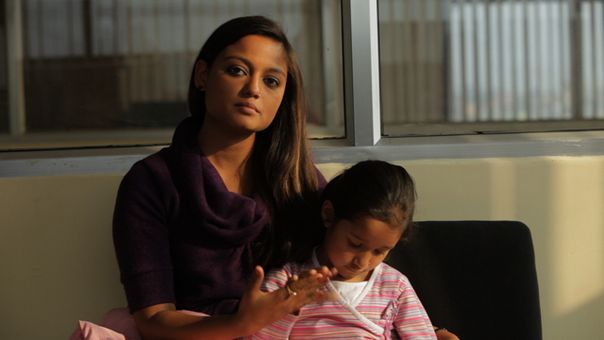Staring at the Road
Conflicts arise on and off a bus, resulting in a journey of bonding and discovery: a review of HIGHWAY from Berlinale Panorama.

Deepak Rauniyar‘s HIGHWAY
A road can have different meanings. For some, the road is a trip, for others, the road is part of the quotidian. What can be an obstacle on that road, also depends on the point of view. In Deepak Rauniyar‘s HIGHWAY (Berlinale Panorama) we follow the journey of a long distance bus, that travels from Darjeeling to Kathmandu, facing different situations, which force the passengers to bond as a group.
Besides a mechanical problem, their main obstacle is the Bandhs – common strikes in India and Nepal which disrupt everyday activities as well as also blocking traffic. The first aspect of interest in HIGHWAY is how this important political factor figures in the movie. As we don't know the exact reasons for these strikes, they appear like an unpredictable external event. This unpredictability, as well as our ignorance of the political motivation behind the Bandhs, creates an almost surreal atmosphere. At this point, HIGHWAY resembles Julio Cortazar's short history "The Southern Highway", where the infinite and seemingly immobile traffic, acts like a fantastic external factor, stimulating the connection between human beings.
The film's focus however is not only on the journey per se, but also – and mostly – on different conflicts between the people inside the bus and those who await them in Kathmandu. Almost everyone in this bus must be in Kathmandu urgently, therefore, they pretend to be a wedding bus, since those are not forbidden to pass the Bandhs. At this point, the movie touches a delicate ambivalence between politics and the respect for local tradition.
Even though the film approaches difficult subjects with an appealing simplicity – homosexuality, transsexuality, adultery – its multi-layered, mosaic structure is excessive. The characters are already united by the fact that they are in the same bus together.
Of particular interest is the way the cellphones are used in HIGHWAY, as they serve both as a bridge between people, as a reaffirmation of our loneliness and lack of control. A cellphone out of service can mean both a technical problem or a real problem – or a problem we imagine. What was invented to make us feel more secure and closer to each other can also be the cause of emotional stress. As the film comes to its end and the group breaks apart, the final sensation also resembles the conclusion of Cortazar's tale: A feeling of the emptiness of facing the reality of life, where everyone is "staring dead ahead, exclusively dead ahead."


301 Moved Permanently